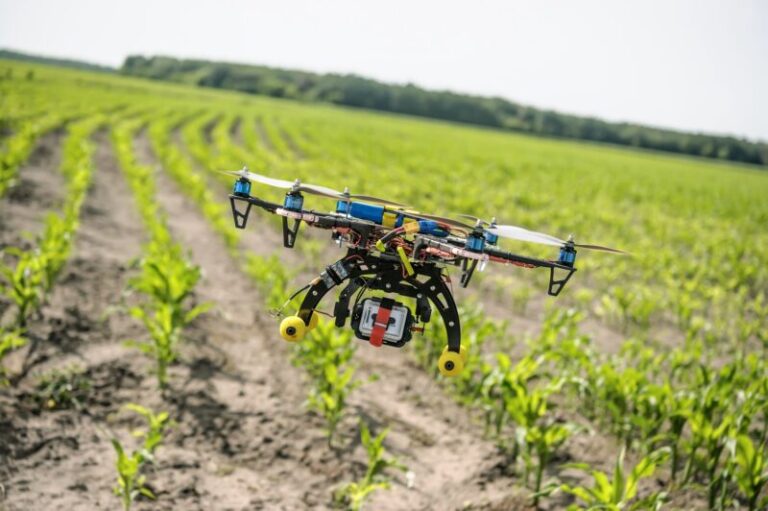Between 1st June and 25th September 2023, India faced extreme and erratic weather patterns, marked by unusually high rainfall in 220 districts and drought conditions in 120 districts. This climate volatility, driven by the intensifying impacts of climate change, resulted in the loss of:
The consequences extend beyond food systems. Extreme weather events disrupt ecosystems, destroy natural habitats, and accelerate the loss of biodiversity, which forms the backbone of sustainable agriculture, clean water, and climate resilience.
As India already ranks 105th out of 121 countries in the Global Hunger Index (2024) – classified under the ‘serious’ hunger category – this damage only deepens an ongoing food crisis.
In a proactive move, India proposed 2023 as the International Year of Millets, a resolution adopted by the UN with support from 72 countries. Nationwide Mission Millets campaigns were launched to promote awareness. However, despite these efforts, the Kharif 2023 cropping pattern shows limited adoption of millets on the ground.
| Crop | Area Sown(Kharif 2022)(Lakh Ha) | Area Sown(Kharif 2023 (Lakh Ha) |
| Rice | 400.72 | 411.52 |
| Total Pulses | 128.49 | 122.57 |
| Total Oilseeds | 196.08 | 192.91 |
| Sugarcane | 55.66 | 59.91 |
| Total Millets | 101.72 | 101.42 |
Source: National Food Security Mission WEEKLY AREA COVERAGE UNDER KHARIF CROPS AS ON 22-SEP-2023
One major reason for this shift is market price controls which mostly apply to staple crops like rice, wheat, maize, sugar, and cotton. As a result, farmers are naturally inclined toward these cash crops, given the higher and more stable demand.
A Quiet Transformation in Akole
Meanwhile, a quiet movement is taking shape. Tribal communities in Akole Block of Ahilyanagar district began reclaiming their heritage: cultivating traditional millets and reviving forest vegetables that had disappeared from family kitchens and local markets.
Despite receiving highest rainfall in the district, the Akole block in the Ahilyanagar district of Maharashtra faces severe water scarcity, significantly impacting agriculture and livelihoods. The region’s hilly terrain and lack of rainwater harvesting efforts have resulted in insufficient water retention, leading to groundwater depletion and limited water resources.
In Akole, paddy has long been the staple crop. But over time, a noticeable shift occurred from traditional varieties to high-yielding hybrid seeds. The reasons were complex: declining productivity, increased dependency on chemical fertilizers, and, most critically, incorrect sowing methods. Farmers believed that dense sowing would increase yield, but it led to the opposite – crop stress, higher input costs, and lower returns.
Recognizing this challenge, a leading asset and wealth management company launched a flagship CSR project focused on holistic rural development, with a primary emphasis on agriculture. The intervention aimed to promote organic farming using traditional seed varieties. However, given the uncertainty of weather, small landholdings, and earlier losses, tribal farmers were hesitant to shift entirely.
To build trust, each farmer was given a small packet of hybrid seeds (enough for about one acre) to ensure income continuity. Alongside, awareness sessions and field demonstrations explained the nutritional and ecological value of traditional rice and millet varieties. The strategy was not to enforce a sudden shift but to introduce a blended approach – retain what works while reviving what was lost.
What truly catalyzed community adoption, however, was an unexpected channel – schools. Collaborating with teachers and school management committees, the project introduced “learning by doing” seed conservation activities for children. Each student was given a small pot and a few seeds of traditional varieties. As the plants matured, students harvested 100 grams of seeds, which teachers encouraged them to plant in their home fields.
This simple exercise sparked a transformation. Within three months, those 100 grams produced 12-15 kg of grain. This not only empowered the children but also demonstrated to parents the real potential of traditional seeds, both in terms of yield and climate resilience.
To build on this momentum, a Mission Millet Festival was organized. Students were asked to bring traditional millet dishes prepared by their families. Others collected information on forest vegetables grown locally and brought samples to school. Teachers played a key role in explaining the nutritional value and growing conditions of these local varieties, sparking curiosity and pride.
What followed was a ripple effect, children convinced their families to adopt traditional crops, leading to wider adoption across villages along with some portions of hybrid varieties for reliable income . With support and visibility, farmers began to sell local varieties to tourists visiting the region, promoting native food systems as both an ecological and economic model.
The learning was clear: agricultural transformation cannot happen through abrupt shifts. The success in Akole stemmed from a blended model i.e. part traditional, part modern. By retaining income assurance through hybrids and building interest in traditional practices through education and demonstration, the project allowed space for gradual, confident change.
Involving children as knowledge carriers proved unexpectedly powerful. What began as a classroom experiment grew into a community-wide movement, safeguarding biodiversity, enhancing food security, and reviving cultural practices.
The Akole experience underscores the need for grassroots-led, culturally rooted conservation models. With minimal CSR investment, communities can develop their own seed banks, reintroduce climate-resilient crops, and create sustainable food systems.
As India continues to face the twin pressures of hunger and climate change, supporting local seed diversity, especially in tribal areas, offers a tangible, low-cost solution. What’s needed is patience, participation, and purposeful partnerships and the courage to learn from the ground up.
Small Seeds, Big Impact: A CSR-Supported Journey of Biodiversity
The learning was clear: agricultural transformation cannot happen through abrupt shifts. The success in Akole stemmed from a blended model i.e. part traditional, part modern. By retaining income assurance through hybrids and building interest in traditional practices through education and demonstration, the project allowed space for gradual, confident change.
Involving children as knowledge carriers proved unexpectedly powerful. What began as a classroom experiment grew into a community-wide movement, safeguarding biodiversity, enhancing food security, and reviving cultural practices.




